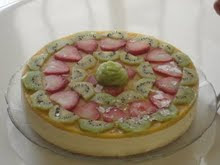
The Neem Tree (Azadirachta indica) is an incredible plant that has been declared the "Tree of the 21st century" by the United Nations. Also known as the Margosa and native to the Indian subcontinent, it has been revered for centuries in Ayurvedic and Unani medicine. Ancient Hindu manuscripts contain chapters on medicinal plants to have near one's house and the Neem tree is highly recommended. The seeds, bark and leaves contain compounds with proven antiseptic, antiviral, anti-pyretic, anti-inflammatory, anti-ulcer and anti-fungal uses.
Traditional Medicinal Uses
The entire tree can be used medicinally to treat a whole lot of ailments - probably why it is affectionately known as "the village pharmacy".
The young twigs are chewed for keeping gums and teeth healthy.
The rich and potent margosa oil is obtained from crushing the ripe seeds. This amazing oil has anti-bacterial, anti-fungal, anti-inflammatory, antiseptic and anti-viral properties. It has even been used to treat leprosy.
The bark and roots can be made into a tea and has been used for centuries to treat jaundice and liver ailments, intestinal parasites, stomach ulcers and malaria.
A tea made from the leaves and mature seeds is still a popular remedy today for treating bladder, kidney and prostate ailments. This brewed tea can be added to a base cream and used as a healing, soothing treatment forhaemorrhoids.
A strong tea of the leaves is used as a lotion for sprains, bruises and swollen glands – a bandage or cloth soaked in the hot tea is applied to the area and held in place, often with a banana leaf wrapped around it.
As a wash and lotion the same tea is used for eczema, rashes, grazes and scrapes and to wash out wounds. Leaves heated in boiling water are applied to boils, sprains, infected wounds, bites, stings and infected grazes.
Neem leaf tea (pour 1 cup of boiling water over ¼ cup fresh leaves, stand for 5 minutes, strain and sip slowly), is taken to reduce blood sugar levels, lower fevers, and to treat tuberculosis, bladder ailments, arthritis, rheumatism, jaundice, worms, malaria and skin disease.
Neem is also used cosmetically and in toiletries. In India, Neem sprigs are boiled, and the water is then used as a hair wash. Neem hair treatment clears scalp infections and dandruff and stimulates both the growth and texture of the hair and rids the scalp of nits, dry itchy scalp and excessive oiliness. It is very effective in clearing up fungal infections like athletes foot, ringworm and Candida.
Environmentally Safe Natural Insecticide
One of it's most useful properties is its remarkable powers for controlling insects. The leaves are used in libraries and in government and university documents to protect against insect damage. The chemical azadirachitin is the main ingredient for fighting insects and pests and has been found to be up to 90% effective. This chemical is present in the wood, leaves and seeds and works by disrupting the life cycle of the insect as well as repelling them.
Neem is not an instant killer like we've become accustomed to with chemical pesticides. It works differently and more slowly, so some gardeners may question its usefulness. Neem repells insects and acts as an anti-feedant so an insect would rather starve to death than eat a Neem treated plant. If they do eat the plant, the Neem acts as a contraceptive and the insects do not mate or lay eggs so their life-cycle is broken.
Insects must feed on plant tissues to be affected so Neem-treated plants are safe for beneficial insects such as bees and butterflies. Neem oil makes an effective insect repellent for the home. To get rid of mosquitoes, flies and crawling insects from your house, make a strong tea made by boiling the leaves and twigs for 20 minutes in enough water to cover them (alternatively use 1 teaspoon pure neem oil to 1 cup of water), place in a spray bottle and then spray all around.
Use of Neem in agriculture for pest control could significantly reduce the load of poisonous chemicals in the environment. There are many cases of toxication by chemical pesticides which cause serious health hazards to farm workers. Then there's the negative impact from the chemical pesticides seeping into ground water and being absorbed by the crops for human consumption. Neem is biodegradable and breaks down easily and quickly, it is also non-toxic to mammals, birds and earthworms. If you are trying to help stop the destruction to the earth then Neem oil is a good natural pesticide to keep in your garden shed.











No comments:
Post a Comment